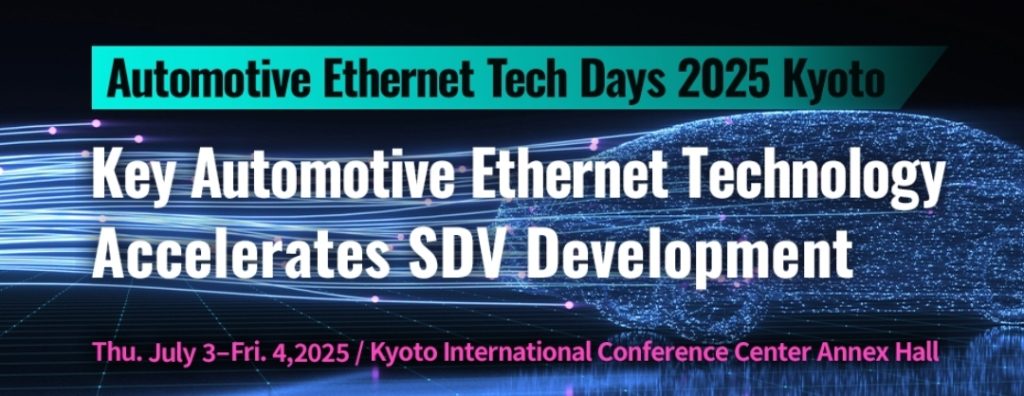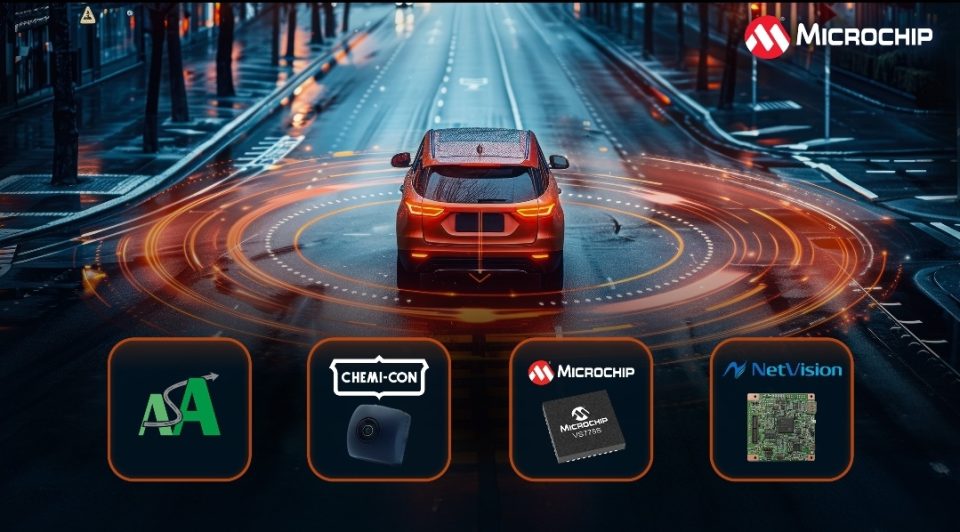Revolutionary partnership transforms Japanese automotive connectivity standards for enhanced customer experience
Industry-Leading Partnership Reshapes Japanese Automotive Technology
Microchip Technology announces a groundbreaking collaboration with Nippon Chemi-Con Corporation and NetVision Co. Ltd. Furthermore, this strategic alliance delivers the first ASA-ML camera development ecosystem specifically designed for Japanese automotive manufacturers. Additionally, the partnership addresses critical customer needs for standardized, secure, and scalable connectivity solutions.
Meanwhile, the automotive industry experiences a significant transformation toward open standards. Consequently, over 150 member companies worldwide now drive the Automotive Serdes Alliance Motion Link (ASA-ML) standard adoption. Therefore, this collaboration represents a pivotal moment for Japanese OEMs seeking competitive advantages in ADAS applications.
Enhanced Customer Experience Through Standardized Solutions
The new ecosystem directly addresses customer pain points in automotive connectivity. Previously, proprietary camera systems created interoperability challenges and limited supplier flexibility. However, the ASA-ML standard now eliminates these barriers while providing enhanced security features.
Moreover, the ecosystem offers scalable high-speed asymmetric data rates that meet evolving customer demands. Simultaneously, it supports critical hardware-based link-layer security to comply with emerging automotive cybersecurity regulations. Thus, customers benefit from both performance improvements and regulatory compliance.
Kevin So, vice president of Microchip’s communications business unit, emphasizes the customer-centric approach. “We collaborated with pioneers like Nippon Chemi-Con and NetVision to deliver solutions that reduce risk and accelerate adoption,” he states. Consequently, this partnership directly addresses customer concerns about implementation complexity and time-to-market pressures.
Comprehensive Development Platform Streamlines Customer Journey
The ecosystem centers on Microchip’s VS775S single-port serializer/deserializer device. Subsequently, this technology enables Nippon Chemi-Con’s CDTrans camera module to provide standardized connectivity. Additionally, NetVision’s NV061 development emulation board complements the platform with comprehensive testing capabilities.
Furthermore, the integrated solution simplifies the development process for Japanese OEMs. Previously, customers faced significant challenges when working with multiple proprietary systems. Now, however, the standardized approach enables seamless integration across different vendor solutions.
Katsunori Nogami, managing executive officer and CTO with Nippon Chemi-Con, highlights the customer benefits. “We recognize the importance of open standards-based connectivity technologies that automotive suppliers and OEMs need,” he explains. Therefore, this collaboration directly responds to customer demands for interoperable multi-vendor solutions.
Advanced Testing Capabilities Enhance Customer Confidence
NetVision’s contribution significantly enhances the customer experience through sophisticated testing tools. Specifically, their VS775S-based ASA-ML serializer connection board integrates with their camera emulation development platform. Consequently, customers can efficiently evaluate video signal quality during design phases.
Additionally, the platform enables real-time video signal capture using Microchip’s VS775S evaluation board. This capability allows customers to verify system performance before full deployment. Thus, development teams can identify and resolve potential issues early in the design process.
Kenji Kudo, Ph.D., engineering department director at NetVision, emphasizes customer value. “Our development platform will help remove key barriers to adoption for many Japanese OEMs and Tier 1s,” he states. Previously, these customers were hampered by proprietary connectivity protocols that limited scalability and interoperability.
Industry-Wide Support Validates Customer Investment
The ASA-ML ecosystem enjoys broad industry support from leading automotive manufacturers. Notably, BMW, Ford, Volvo, GM, Continental, Bosch, and Denso actively participate in the alliance. Additionally, numerous semiconductor companies contribute to the standard’s development and promotion.
This comprehensive industry backing provides customers with confidence in their technology investments. Moreover, the diverse membership represents the complete automotive ecosystem, including manufacturers, suppliers, and testing organizations. Therefore, customers benefit from a mature, well-supported standard with long-term viability.
Furthermore, the alliance’s membership continues expanding as more companies recognize ASA-ML’s strategic importance. Consequently, customers can expect continued innovation and development within the ecosystem.
Multi-Vendor Solutions Address Critical Customer Needs
Modern automotive customers increasingly prioritize supply chain resilience and sourcing flexibility. Previously, single-vendor ecosystems created significant risks and limited operational options. However, the ASA-ML standard enables true multi-vendor compatibility while maintaining high performance standards.
Additionally, L2 and L2+ autonomous applications require increasing numbers of cameras and sensors. These applications demand scalable, architecturally flexible connectivity solutions that traditional approaches cannot provide. Therefore, the ASA-ML ecosystem directly addresses these evolving customer requirements.
Moreover, the standardized approach eliminates the shortcomings of closed, proprietary systems. Customers now enjoy greater flexibility in vendor selection while maintaining system performance and security. Thus, the ecosystem supports both current needs and future growth strategies.
Comprehensive Market Support Ensures Customer Success
The partnership provides extensive market support to ensure customer success in ASA-ML adoption. Microchip will demonstrate the complete camera/capture card solution at Automotive Ethernet Tech Days in Kyoto, Japan. This demonstration allows potential customers to experience the technology firsthand.
Additionally, engineering samples of the VS775S serializer/deserializer and evaluation kits are currently available to qualified customers. Therefore, development teams can begin immediate evaluation and integration planning. Furthermore, comprehensive technical support ensures smooth implementation processes.
The ecosystem also includes extensive documentation, design guidelines, and application notes. Consequently, customers receive complete support throughout their development journey. This comprehensive approach reduces implementation risks and accelerates time-to-market.

Future-Ready Technology Supports Customer Growth
The ASA-ML ecosystem provides a clear pathway for future automotive technology evolution. While current applications focus on ADAS systems, the scalable architecture supports emerging autonomous driving requirements. Therefore, customers can invest confidently knowing their technology choices will support future growth.
Additionally, the standardized approach enables rapid integration of new capabilities as they become available. Customers benefit from continuous innovation without requiring complete system redesigns. Thus, the ecosystem provides both immediate value and long-term strategic advantages.
Furthermore, the partnership’s commitment to open standards ensures continued interoperability and flexibility. Customers can adapt their systems as market conditions and requirements evolve. This adaptability becomes increasingly important as automotive technology continues advancing rapidly.
Conclusion: Transforming Automotive Connectivity
The Microchip, Nippon Chemi-Con, and NetVision partnership represents a significant milestone in automotive technology evolution. By delivering the first ASA-ML camera development ecosystem for Japanese markets, they directly address critical customer needs for standardized, secure, and scalable connectivity solutions.
Moreover, this collaboration demonstrates the power of industry cooperation in driving innovation. Customers benefit from the combined expertise and resources of three industry leaders. Therefore, the ecosystem provides comprehensive solutions that individual companies could not deliver independently.
Finally, the ASA-ML ecosystem positions Japanese automotive manufacturers for success in an increasingly competitive global market. Through standardized connectivity, enhanced security, and multi-vendor compatibility, customers gain the tools needed to deliver exceptional automotive experiences.

